
WhatsApp says warning message of cyberattacks on Jewish people is a hoax
WhatsApp has said warnings about cyberattacks targeting Jewish people are a hoax with no basis in reality. The Meta-owned platform has debunked several messages widely circulating on social media platforms that warn Jewish people will be the target of cyberattacks through forwarded messages. But WhatsApp communications manager Emily Westcott told The Independent that the forwarded messages, which have been widely shared on the platform as well as across other social media including X/Twitter, are a hoax. The clarification comes amid the ongoing conflict in Israel after an unprecedented surprise attack by Palestinian militant group Hamas on Saturday. The hoax messages said clicking on pictures of the fighting shared on WhatsApp as a file called “Seismic Waves CARD” would quickly enable phone hacking if opened. Crypto influencer Scott Melker, who has nearly a million followers on X, was one of the users who shared the false warning. “Do not open it, it will hack your phone in 10 seconds and cannot be stopped in any way,” Mr Melker’s post on his verified X account falsely claimed. Ms Westcott pointed out that the same rumour circulated after an earthquake struck Morocco last month that left nearly 3,000 people dead and thosands more injured. In the aftermath of the devastating earthquake, messages began circulating on social networks that photos of the quake shared in a file named “Seismic Waves CARD” on platforms would enable hackers to access one’s phone if opened. “The file is called Seismic Waves CARD, don’t open it or see it, it will hack your phone in 10 seconds and it cannot be stopped in any way. Pass the information on to your family and friends,” the false message had read. WhatsApp also told the fact-checking site Snopes that these messages were “false”. Another Italy-based fact-checking website, Bufale.net, also said the purported “hack” was a hoax. The recent use of the same message adds to the steep levels of misinformation and disinformation being spread following the conflict in Israel. Elon Musk, the multibillionaire owner of X, has also come under heavy criticism for the spread of misinformation on his platform over the attack. The Tesla titan pleaded with X users on Sunday to try and stick to the facts and “stay as close to the truth as possible”. Old videos are being repackaged and circulated on X as if they are from the most recent attack on Israel. One such widely shared video, that falsely claimed to show a Hamas militant shooting down an Israeli helicopter, was later found to be a clip from a video game. Another clip of Israel bombing a Gazan office tower that was shared widely was found to be from fighting that actually occured in 2021. X has not immediately responded to The Independent’s request for comment. Read More Huge crowd chants ‘free Palestine’ in front of Israel’s London embassy Aid groups scramble to help as Israel-Hamas war intensifies and Gaza blockade complicates efforts More than 10 Britons feared dead or missing as Netanyahu exacts revenge on Hamas X introduces limits to prevent non-paying users from replying to posts New discovery is ‘holy grail’ breakthrough in search for aliens, scientist say Earth hit by a huge solar storm that would devastate civilisation, trees show
2023-10-10 20:58
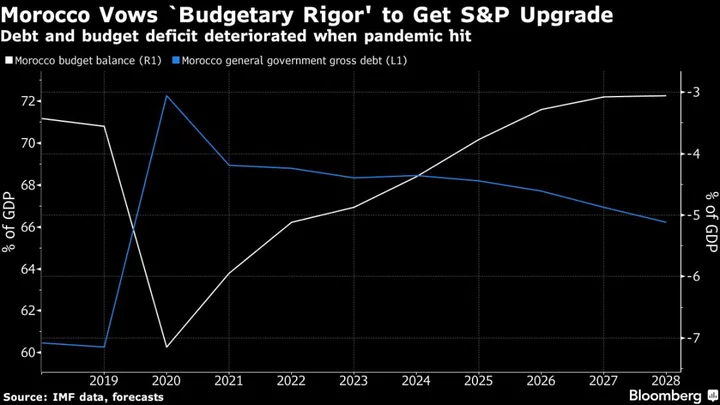
Morocco Pushes to Lose Junk Credit Rating, Finance Minister Signals
Morocco is lobbying to regain an investment-grade credit score from S&P Global Ratings, vowing to keep its budget
2023-10-10 19:57

Indian Refiner Seeks First Ethanol From Bamboo as Demand Swells
India’s state-owned Numaligarh Refinery Ltd. says it’s set to pioneer the production of ethanol from bamboo in the
2023-10-10 19:54
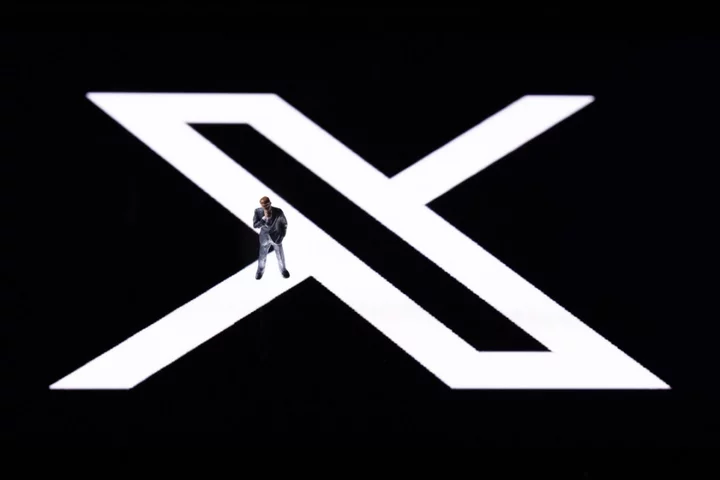
X introduces limits to prevent non-paying users from replying to posts
Elon Musk has introduced new controls to X, formerly Twitter, that allow users to limit who can comment on posts to just paying users. The reply paywall will prevent unverified accounts that do not pay for X Premium from engaging in discussions on certain posts. It is the latest change to the platform that Mr Musk has overseen since taking over Twitter last year and renaming it X. The tech billionaire, who is the most-followed person on X, said the latest limits “should help a lot with spam bots”. Mr Musk has brought about a complete overhaul of the way verification on the platform works since his takeover, removing the legacy blue ticks from celebrities, journalists and politicians, and giving them to anyone who paid a monthly subscription fee. These paying users were also given prominence over non-paying users when appearing in searches, as well as prioritised ranking in conversations. The move comes amid reports that Mr Musk is planning to test new subscription options for X users, which could see the introduction of up to three tiers. Each premium tier will offer different levels of ad exposure, according to a report in Bloomberg, though it is not clear if the price of the top tier will differ from the $11 (£9.60) that it currently costs. Other social media firms are also considering similar subscription models, with both Meta and TikTok among those who will potentially supplement their advertising revenue with a user-funded model. Monthly fees for Meta’s platforms, which include Facebook and Instagram, could cost between €10 (£9) and €13 in Europe, The Wall Street Journal reported last week, and come in response to Europe’s data privacy laws. These laws are seen as a threat to the lucrative business model of showing personalised ads to users, with a spokesperson confirming that Meta was exploring options to “comply with evolving regulatory requirements”. Read More The mystery AI device that could replace your phone Schoolboy almost dies from swallowing magnets for TikTok challenge Woman shares honest review of New York City apartment TikTok mom slammed after making 5-year-old son run in 104 degree heat
2023-10-10 19:15

Climate Expert Claudia Sheinbaum Aims to Lead Oil-Rich Mexico
As mayor of Mexico City, a job she held until June, Claudia Sheinbaum rarely let her attention to
2023-10-10 18:46

There's an unsavoury reason for the weird patterns on train and bus seats
Whether it's on a bus or a train, you've probably noticed how the seats have a distinctly bold and garish pattern - but why is this the case? Well, it's not for aesthetic design reasons but rather it's down to the fact that the patterns are able to effectively cover up stains. Just think about how many people get on public transportation for their daily commute to work, the millions of people who will plonk themselves on those seats throughout the year as well as those using the nighttime service. There are bound to be drinks and food spilt on the seat, and so in response to this inevitability it's better to have busy patterns rather than plain ones - otherwise we would perhaps think twice about sitting. But nowadays, the various patterns on different modes of public transportation are seen as iconic designs for that particular area of the world. For example, last year Premier League football team Arsenal released shirts with a design inspired by the bold pattern which appears on Piccadilly line trains. Meanwhile, there are a number of factors to think about when designing the seat pattern such as how it looks in both daylight and artificial light. @plutosdestiny Bus seats are made of a special fabric with unusual patterns because it helps them mask stains, wear and tear and look fresh without the need for much maintenance. The weird, mind-bending patterns are designed to make the seats appear clean and unworn, even though they conceal a lot of dirt within those wild patterns. [Credit - KubulMKM - YT] The fabric is also an integral consideration, the material used for the seats is moquette and it is different to the sofa you sit on at home. “Coming from the French word for carpet, moquette has been seen and sat upon by millions of commuters on buses, trains, trams and trolleybuses for over 100 years,” the London Transport Museum explained. “It is produced on looms using the Jacquard weaving technique, with a pile usually made up of 85% wool mixed with 15% nylon.” But what makes it the ideal material for this purpose? “Moquette was chosen for public transport for two reasons," it continued. "First, because it is hard-wearing and durable. Second, because its colour and patterns disguise signs of dirt, wear and tear. On top of this moquette had the advantage of being easy and cheap to mass-produce.” Something to contemplate next time you're sitting on the bus or tube. Sign up to our free Indy100 weekly newsletter Have your say in our news democracy. Click the upvote icon at the top of the page to help raise this article through the indy100 rankings.
2023-10-10 18:24

Deutsche Bank Seeks Expert Help in Probing Nature-Linked Risks, Investments
Deutsche Bank AG said it set up a panel to help it assess nature-related risks and identify new
2023-10-10 17:24
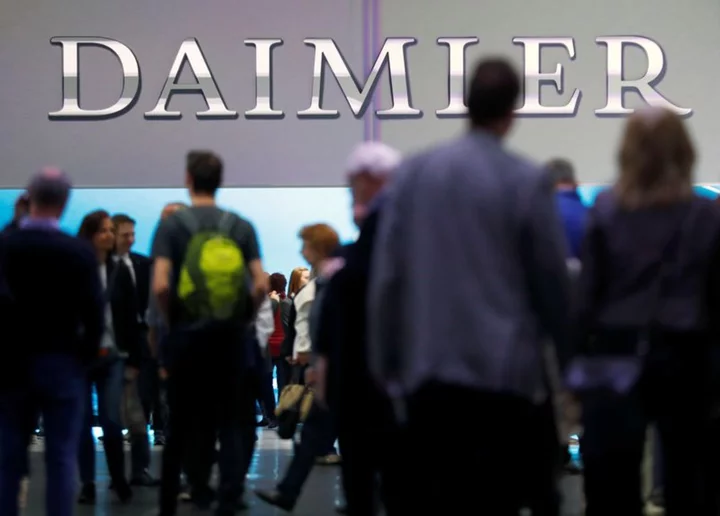
Daimler Truck premieres new eActros 600 in step towards all-electric shift
BERLIN Mercedes-Benz Trucks, the European division of commercial vehicle maker Daimler Truck, premiered its battery-electric long-haul truck eActros
2023-10-10 16:29
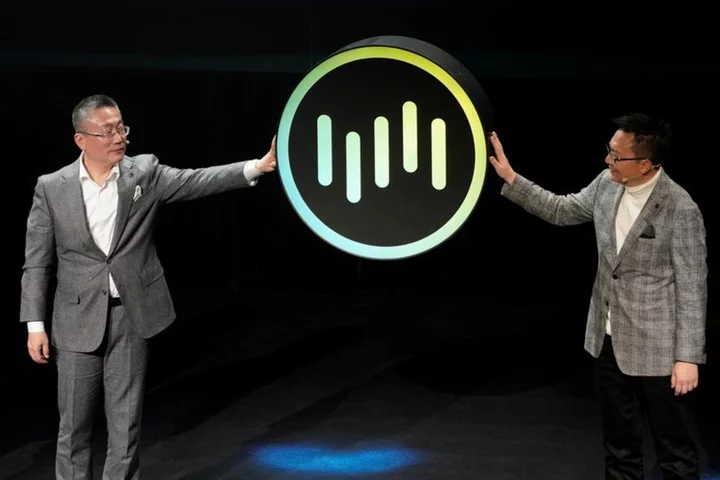
Chinese EV startup WM Motor files for bankruptcy
BEIJING (Reuters) -Chinese electric vehicle startup WM Motor has filed for bankruptcy, marking the demise of a promising standout among
2023-10-10 14:22

DWS Executive Warns of ‘Nightmare’ Result as ESG Rules Revamped
As Europe embarks on a wholesale review of the world’s biggest ESG investing rulebook, an executive at Deutsche
2023-10-10 13:27
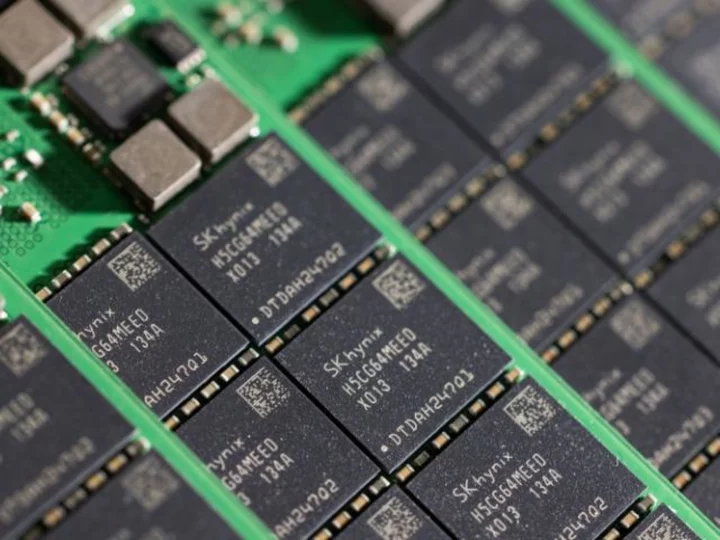
South Korean firms get indefinite waiver on US chip gear supplies to China
Samsung Electronics and SK Hynix will be allowed to supply US chip equipment to their China factories indefinitely without separate US approvals, South Korea's presidential office and the companies said on Monday.
2023-10-10 11:50

Singapore Is Fighting Rising Seas to Save $50 Billion in Real Estate
(Bloomberg Markets) -- During a half-century of independence, Singapore has fought to expand its territory, inch by hard-won inch. On
2023-10-10 08:56
